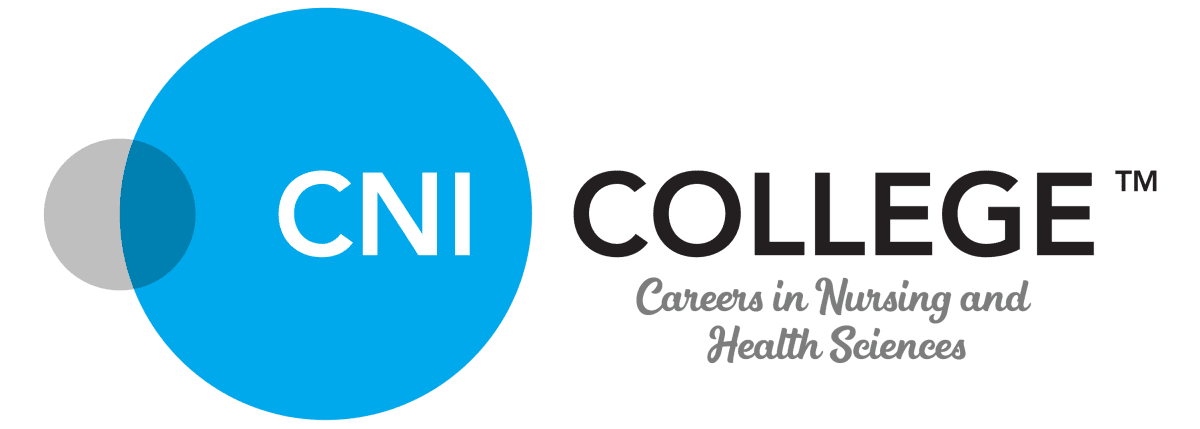Associate of Occupational Science Degree in Magnetic Resonance Imaging (MRI) Technology
Learn the technical and ethical components of the field from professionals who’ve been there.
Page Contents
Unlocking Futures with an Accredited MRI Program

At CNI College, we offer a top-notch program for those looking to become MRI Technologists through our Associate of Occupational Science (AOS) in MRI Technology. Our program is all about excellent education. It’s crafted to help a wide variety of students grow intellectually, socially, and professionally. We aim to prepare our students for real-world jobs right after graduation.
In the AOS MRI program, you’ll dive into learning about Magnetic Resonance Imaging Technology. You’ll get practical experience using MRI scanners to help diagnose patients. But it’s not just about the technical skills; we also focus on teaching you how to care for patients with kindness and empathy. Our mission is to train skilled and caring MRI Technologists who are ready to start their careers and make a difference in medical imaging and patient care. Join us to start shaping your future and the future of healthcare.
Hands-On Excellence
Our program is big on giving you real experience with Magnetic Resonance Imaging. We have over 120 hours just for you to get hands-on practice in labs and simulations. This means you get to try out what you learn in class for real. Plus, there’s a big 1000-hour externship. This is your chance to work in a real clinic, use your skills on actual patients, and get advice from experts who know the ins and outs of MRI Technology. With all this practice, our students become good at what they do, ready to jump into their careers with confidence.
Facilities and Resources for MRI Students
At CNI College, we’re all about giving our MRI students the best place to learn. You’ll get to work in our labs and even special Saturday Labs at Imaging Centers, led by seasoned instructors. We’ve got a library right here with everything you need, plus a librarian to help you out. And it doesn’t stop there. You can also dive into the Online LIRN Library for even more research tools.
We’re also teamed up with St. Joseph Hospital’s Burlew Medical Library, giving you access to a huge collection of medical books and articles. It’s all part of making sure you have a rich learning experience, surrounded by resources and support every step of the way.
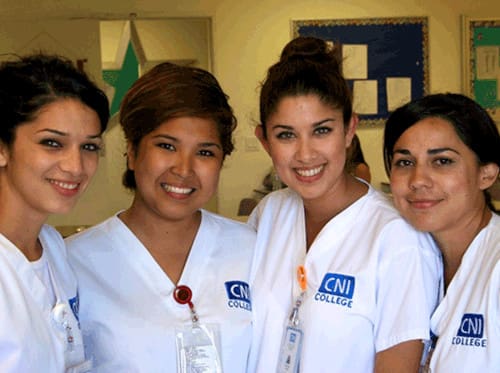
Credentials that Count
Upon successful completion of the AOS MRI Technology program at CNI College, graduates will be awarded an Associate of Occupational Science (AOS) MRI Degree. The program is designed to prepare students comprehensively for the National ARMRIT and/or ARRT exams, underscoring its commitment to ensuring graduates are well-equipped for professional success. As a part of this preparation, the program mandates the satisfactory completion of a capstone course, emphasizing academic knowledge, professional accountability, and independent decision-making. CNI College actively encourages all AOS MRI students to pursue and sit for the National ARMRIT and/or ARRT exams, recognizing the value of these credentials in advancing their careers in the dynamic field of Magnetic Resonance Imaging.

RN To BSN Degree
The emphasis on evidence-based clinical practice and leadership can land you in roles where your problem-solving skills are needed and well respected.
CNI College Online Admissions Application
If You Are Ready To Get The Education You Need To Start Your Career In The Healthcare Field.
Unique Features of CNI's MRI Program

CNI College’s MRI program is something special. We offer an excellent Associate of Occupational Science (AOS) in MRI Technology degree, with a few things that really set us apart:
- State-of-the-Art Labs: Our campus has amazing labs, including the latest CorsMed Simulation technology. Plus, we have Saturday Labs at local imaging centers, where expert instructors lead the way.
- Real-World Experience: You’ll get to do a 1000-hour externship at top imaging centers and hospitals. This is a big deal because it’s your chance to apply what you’ve learned and see how it works in real life.
- Extra Help for Exams: Every student gets an MRI Quiz Review and an All-in-One MRI Review to help you ace your registry exams. We also offer tutoring and extra help sessions during the week, all from our highly qualified teachers.
We’re all about excellence here, providing a dynamic learning experience with great resources right on campus.
Turn my Passion Into a Career
All fields required*
Cutting-Edge Tech at Your Fingertips
In our commitment to providing an immersive and advanced learning experience, CNI College ensures that students have access to cutting-edge MRI technology. Our students have an opportunity to train with a range of top-tier MRI machines, including:
- GE 1.5 T
- GE 3t
- Siemens 1.5T
- Siemens 3T
- Philips 1.5T
- Fonar upright
- Hitachi 0.3
Research and Industry Partnerships
We believe learning comes alive with real-world connections. That’s why:
- Research: Our program is always looking into new findings in MRI technology. Our Associate Director leads these research efforts to keep our program leading the way.
- Industry Partnerships: With agreements with over 50 Imaging Sites and Hospitals in Southern California, our students get hands-on experience with the most advanced MRI machines and meet experienced professionals in the field.
Staying Updated with the Latest in MRI Technology
Staying current is key in the MRI world. Here’s how we do it at CNI College:
- Conferences and Learning: We’re connected to major accreditation agencies like ARMRIT and ARRT Registry, and attend their annual conferences to hear from top speakers and learn about new MRI tech.
- Latest Resources: We keep our course materials up-to-date with the newest products, services, and books in MRI technology. Plus, our staff stays in constant contact with imaging sites and hospitals to make sure our students are learning the most current techniques and trends.
CNI College is committed to providing an education that’s not just about today but also prepares you for tomorrow’s technology in MRI.
Navigating the Comprehensive MRI Curriculum

Our MRI program is an exciting and in-depth journey. It’s an Associate of Occupational Science Degree in MRI Technology that covers 1746 hours over 101 quarter credits. The program is designed to fit your life, offering classes in the evenings and on weekends for 18.75 months (or about 75 weeks). Keep in mind, how long it takes can change depending on your schedule.
We cover everything you need to know to succeed as an MRI Technologist. This includes how to take care of patients, understanding physics and math, medical terms, anatomy, and how to use MRI technology. You’ll also do a lot of hands-on learning in labs and complete a 1000-hour clinical externship. We focus on making sure you’re not just good at using the technology but also excellent in caring for patients. Our graduates are ready to join healthcare teams and excel in their careers. Here’s a look at the courses you’ll take:
Quarter 1
Computer Application is a foundational course providing students with a comprehensive introduction to the online learning environment and essential technology skills. Delivered in an online asynchronous format, the course covers the use of various tools, including laptop computers, Microsoft programs, Canvas, and computer-based resources such as MyITlab. By the end of the course, students will demonstrate proficiency in computer applications, ensuring academic success both online and in traditional classroom settings through the effective utilization of electronic learning resources.
Written Communication is a foundational course that reviews fundamental English concepts and introduces students to college-level writing. Emphasizing basic grammar and composition skills, students engage in various writing activities to enhance their ability to develop well-structured paragraphs and essays, fostering essential communication skills for academic success.
College Mathematics provides students with a comprehensive exploration of fundamental pre-algebra concepts. From whole numbers to basic algebra, this course introduces key mathematical principles such as fractions, decimals, ratio and proportion, integers, order of operations, percent, signed numbers, measurements, geometry, statistics, and probability, equipping students with a solid foundation for more advanced mathematical studies.
Quarter 2-3
Anatomy & Physiology offers an in-depth exploration of various human systems. From biochemistry to the reproductive system, the course delves into the anatomy and function of organs and tissues, emphasizing the interrelationships of these systems and their homeostatic nature in the context of human disease states, providing students with a comprehensive understanding of the complexities of the human body.
Fundamentals of Imaging Science & Healthcare is a comprehensive course introducing key concepts in imaging science and healthcare. Covering medical terminology, patient management, medical law and ethics, pharmacology, CPR, and professional development, this course provides a foundational understanding of the radiologic science field. Students engage in critical thinking, communication skills, and ethical considerations, gaining practical knowledge in venipuncture techniques and administering diagnostic contrast agents. Additionally, the course focuses on personal and professional development, guiding students in job search techniques and resume preparation through mock interview practicum.
MRI Pathology immerses students in the study of common pathologies encountered in magnetic resonance imaging. Delving into the appearance of these pathologies across various imaging protocols, the course comprehensively covers all major body systems and areas commonly examined in MRI, providing students with a solid understanding of pathological conditions and their manifestations in diagnostic imaging.
Quarter 4-5
Principles and Physics of MRIT is a comprehensive course providing students with a detailed overview of magnetic resonance imaging principles. Topics covered include the history of MR, nuclear MR signal production, health and safety regulations, tissue characteristics, pulse sequencing, imaging parameters/options, and computer in imaging formation and medical informatics. Students will demonstrate advanced application of knowledge in imaging parameters and formations, ensuring a deep understanding of the physics underlying MR imaging.
Cross Sectional Anatomy provides a detailed exploration of human anatomy observed in multiple orthogonal planes. Students study the bones, muscles, vascular structures, organs, and soft tissues of various anatomical regions, including the central nervous system, head, soft tissue neck, musculoskeletal system, cardiovascular system, thorax, abdomen, and pelvis, gaining a comprehensive understanding of cross-sectional anatomy in the context of magnetic resonance imaging.
Quarter 6
MRIT Clinical Externship offers students the invaluable opportunity to apply and enhance their skills in obtaining high-quality MR images. Through hands-on clinical education conducted at a healthcare facility, students develop the ability to adapt imaging protocols based on patient pathology, identify and correct image quality issues, and progress through competency levels with clinical performance objectives and exams. With access to facilities, personnel, and educational resources, this course ensures students acquire the proficiency and expertise necessary for success in the dynamic field of MR imaging.
Capstone is a crucial course designed to prepare MRI-AOS Degree students for the certification exam process. Reinforcing academic knowledge, professional accountability, and independent decision-making, the course emphasizes the critical nature of self-assessment through the completion of mock certification exams. Held on Saturdays, this mandatory capstone course equips students to sit for both the ARMRIT and ARRT National Certification Exams, with successful completion being mandatory for the Program Director to authorize exam applications.
Join us on this educational journey, where our program is designed to equip qualified individuals with the knowledge, attitude, and skills needed for a safe and competent career in MRI Technology.
Prerequisites for Success
Before embarking on the transformative journey of the AOS MRI Technology program at CNI College, aspiring students must meet certain prerequisites to ensure a solid foundation for success. These prerequisites are carefully curated to provide incoming students with the essential knowledge and skills necessary to thrive in the program, setting the stage for a comprehensive and rewarding educational experience in the field of Magnetic Resonance Imaging.
- Complete a potential student questionnaire form.
- Attend an initial personal interview with a CNI College Admissions Advisor and receive a tour of the campus.
- Be at least 17 years of age.
- Have earned a high school diploma, GED, or foreign equivalent.
- Take and pass the Wonderlic (SLE) exam with a minimum score of 18 or have an SAT score of 1220 or above*, or an ACT score of 17 or above* or a verified bachelor’s degree or higher.
- Complete financial arrangements and financial aid documents.
- Complete an Enrollment Agreement
*Scores must have been earned within the past 5 years.
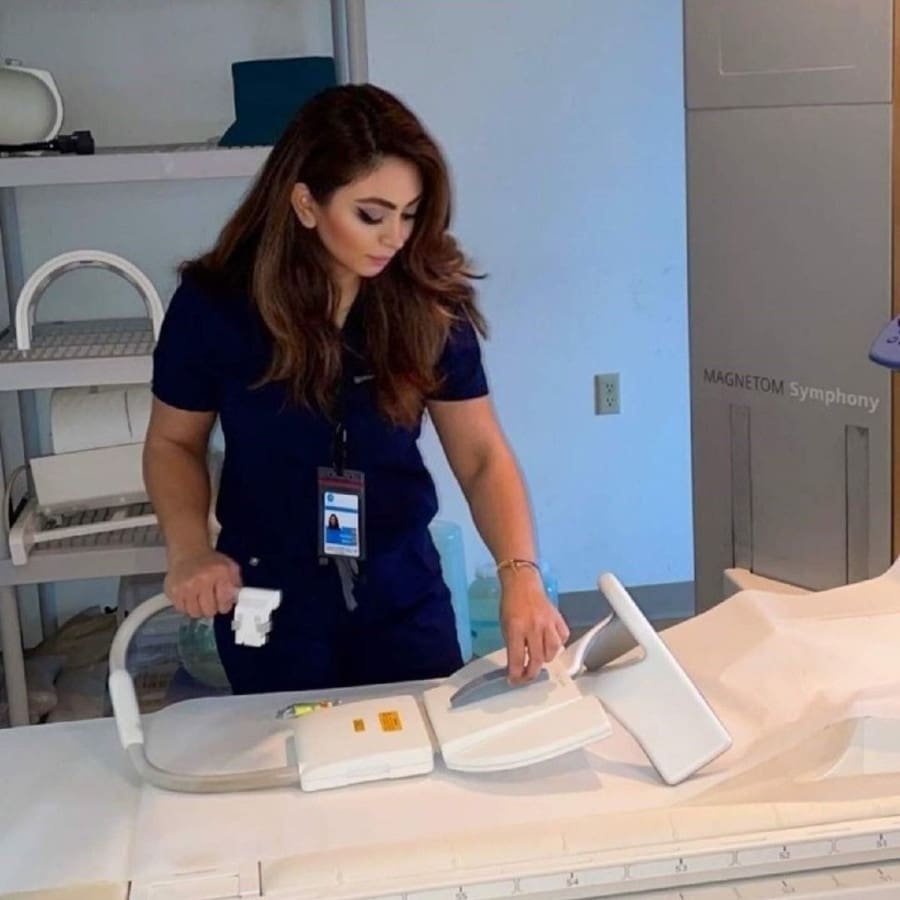
Meet the Masters: Instructors and Their Qualifications in the MRI Program

At CNI College, the MRI program is guided by a team of seasoned professionals, each bringing a wealth of knowledge and expertise to the classroom. Our instructors are not just educators; they are industry masters with extensive qualifications and experience in the field of Magnetic Resonance Imaging (MRI). Get acquainted with the leaders shaping the next generation of MRI Technologists through their exceptional skills, diverse backgrounds, and dedication to providing an enriching educational experience.
Mahmud Khokhar, MD, ARMRIT
Director of AOS MRI Technology
Islamia University Baha
Khalid, Khan, MD
AOS MRI Faculty
St. Petersburg State Pediatric Medical Academy
Adam Higgins, AAS, ARMRIT (MR)
Lab Faculty
Casa Loma College, Calvary Chapel Bible College
Melissa Martinez, ASMR, ARMRIT
AOS MRI Lab Faculty
West Coast Ultrasound Institute
Ramin Mirbostani, BS, AS, AA, ARMRIT, ARRT
Associate Director, and Clinical Manager of AOS MRI
Casa Loma College, Azad University
Dr. Khalid Suleman, MD
Science Instructor
Bahauddin Zakariya University
Chris Garcia, AAS
AOS MRI Lab Faculty
National Polytechnic College
Hanafy Ashraf, MD, MSc Histology/Cardiology MBBCh Medicine & Surgery, GCE Certificate
AOS MRI Theory Instructor
Cairo University, Suez Canal University
Joel Guleserian, AOS, ARMRIT
Lab Instructor
CNI College, Santiago Canyon College
Amira Yousuf, MBBST
Theory Instructor
JIIU’s Indian Institute of Medical Science and Research
Heidi Baltazar, ASMR, ARMRIT
AOS MRI Lab Faculty
West Coast Ultrasound Institute
Jose de Leon, MD, BS
BS AOS MRI Faculty
University of Santo Tomas, University of the East
Kirk Hodson, AAS, AART, Special Imaging Technology Certificate
Lab Faculty
Loma Linda University
Maria Fuentes, ASMR, ARMRIT
AOS MRI Lab Faculty
West Coast Ultrasound Institute
Academic and Career Support

At CNI College, we are committed to not only providing an exceptional academic experience but also ensuring our students are well-supported on their career journey. We provide an array of academic and career support services designed to empower students with the tools and guidance needed for success in both their educational pursuits and future careers in Magnetic Resonance Imaging (MRI).
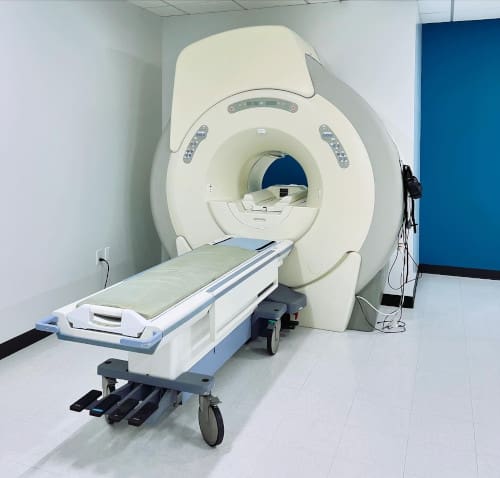
Opening Doors to Careers for MRI Program Graduates
Choosing a career in MRI is stepping into a growing part of healthcare. We’re here to prepare you for great job opportunities. Thanks to our connections with over 50 imaging sites and hospitals, our students have a strong chance of finding rewarding jobs after graduation.
The hands-on training you get here doesn’t just teach you skills. It makes your resume shine. Graduating from CNI College means you’re ready to stand out and succeed in the MRI field.
Career Services for Seamless Job Placement
Our Career Services team works hard to make your shift from student to working professional as smooth as possible. With tutors available every day and extra help whenever you need it, we keep you moving forward. Our teachers, directors, and managers are here to give you the personalized advice you need.
We visit externship sites weekly to make sure you’re keeping up with the essential skills for your ARMRIT and ARRT exams. And with classes aimed at getting you exam-ready, we’re here to help you succeed.
While we can’t promise a job, our workshops on resumes, interviews, and job hunting are designed to give you the best shot at landing a great position. Our strong relationships with MRI partners mean we’re always working to open doors for you.
Beyond the Classroom
At CNI College, we believe in providing students with opportunities to extend their learning beyond the traditional classroom setting. We invite students to attend the ARRT and ARMRIT Conferences, allowing them to stay up to date on industry trends and earn Continuing Education Units (CEUs).
And if you need extra support, our tutoring and special review classes are ready to help you tackle any challenge. Both of these are available during the week and on Saturdays. A review class on Saturday afternoons gives support and preparation for the challenges of the program. These additional opportunities to learn make sure you’re getting the most out of your time at CNI College, preparing you for a successful career in MRI.
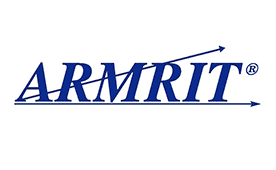
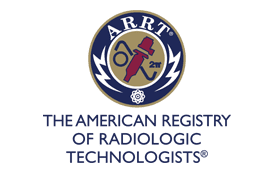
Alumni Chronicles: Success Stories and Testimonials from MRI Program Graduates

Embarking on a career in Magnetic Resonance Imaging at CNI College has been a transformative journey for many, paving the way for success and personal growth. Let the experiences of our graduates speak for themselves. In their own words, hear the stories of triumph, achievement, and the profound impact the MRI program at CNI has had on their professional lives.
“What drew me to the field of MRI technology is the perfect combination of cutting-edge science and technology with the deeply rewarding aspect of patient care.”
Melissa Ricci - CNI Graduate
“And my deepest gratitude to the CNI College faculty, Dr. Mahmud Khokhar, and Mr. Ramin Mirbostani. Thank you for always believing in me.”
Haleh Ghazian - CNI Graduate
“I would like to say thank you to all my instructors and professors in Cni College you all opened up a new door to a brighter future for me and my family.”
Artemiz G. - CNI Graduate
